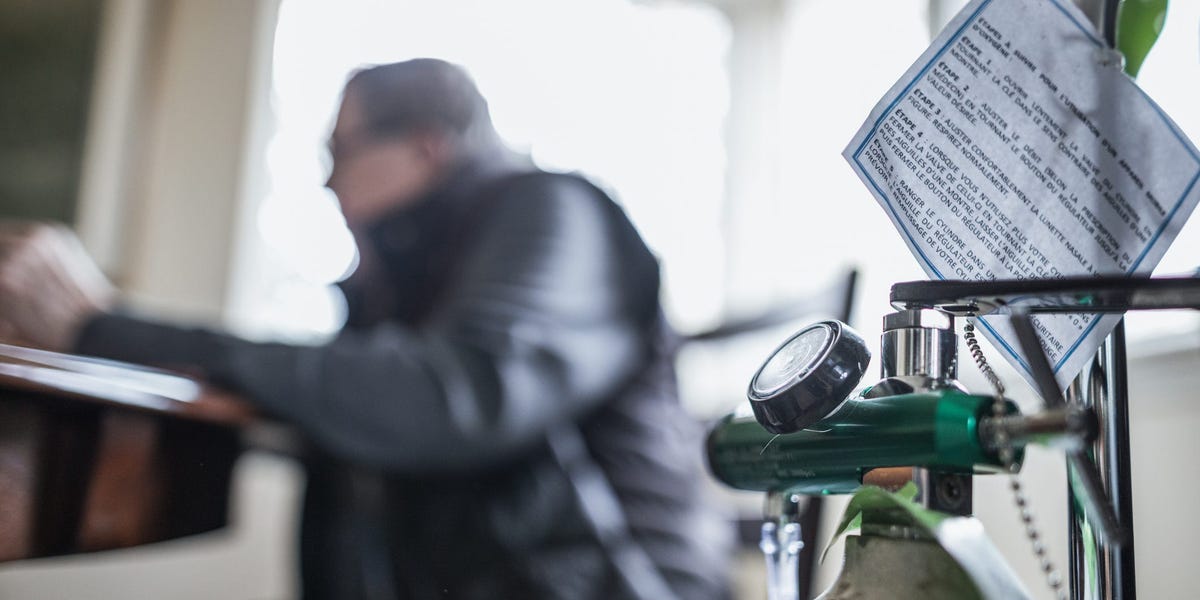
This as-told-to essay is based on a conversation with Antwan Winkfield, founder of the inspirational clothing brand SMILS. It has been edited for length and clarity.I was diagnosed with neurofibromatosis type 1 with plexiform neurofibromas (NF1-PN) as a toddler, so I don’t remember a time before the symptoms. Growing up, my biggest impact from NF1-PN — which causes tumors to form throughout the body — was scoliosis, which is a curvature of my spine. I needed my first spine surgery when I was just 2, and I was fragile as a kid from the metal rods in my back. There was no football or roughhousing for me.I was a kid with restrictions, but I just wanted to be a kid. So, I pushed the limits. My mother never coddled me, and I’m grateful for that. She never let me use my disability as an excuse.At first, I went to a school for disabled kids, but I wasn’t being academically challenged. In third grade, I asked my mom to let me transfer to public school. A bully in my grade sent me home in tears every day. One day, the teacher told the bully to sit and listen to my story. That changed my life because as I told her everything I had been through, I realized I’m kind of a badass.It took me five years to graduate college because of illnessThat’s when I decided that I had NH1-PN; it didn’t have me. At that age, I wasn’t thinking about college because I thought I’d never be able to afford it. But in eighth grade, a teacher encouraged me. That’s when I developed a new dream: to be the first person in my family to graduate from college.
Years later, as that achievement got closer, I realized that it was one thing to get accepted to college and a whole different one to graduate. I enrolled at the University of Kansas to study social work. But around that time, my NF1-PN symptoms started to flare.Internal tumors were compressing my lungs, which left me susceptible to sickness — not a good thing when you’re living in a dorm. I never just caught a cold. It always became pneumonia, usually severe enough to leave me in the hospital for weeks.At one point, I thought I was going to have to drop out of college. With my advisor’s help, I talked with my teachers, and many of them worked with me. Because of that, I was able to graduate with my bachelor’s degree in five years. I came from a family where I was never expected to go to college, and I’d had a life of chronic illness, so graduating was surreal.I graduated with my master’s when I was in the ICUAfter graduation, I worked in a court diversion program with young people who were at risk. It meant a lot to be able to show them that there was no excuse for not going to college.After five years, I decided to go back to get my master’s in business administration. During that time, my health continued to get worse. I needed supplemental oxygen, and I had my first trach tube placed. I needed to be on a ventilator occasionally, especially at night time. Despite that, I kept up with school and worked full time.I graduated from my master’s program while I was in the intensive care unit. I live-streamed the ceremony and marched across the nurses’ station to get my degree. It wasn’t the ceremony I had envisioned, and I missed my classmates, but I was still so proud.I want others to handle adversity, not let it handle themAfter that, I knew I could do anything. Still, my health was really making it difficult. I started having trouble drawing a full breath. I even wet myself a few times. Doctors told me it happened because my oxygen levels had dipped dangerously low.That’s when they knew I needed to be on the ventilator full-time. I knew they were right, and I wasn’t going to let that hold me back. I made the decision to be happy, and keep living my life. I ordered a cart from Amazon and pushed my ventilator around with me wherever I went — including at my job as a manager for an entertainment company.I want other people to know that adversity doesn’t have to be your destiny. We’re all going to encounter adversity, and you’re in control of how you respond to it.Recently, I was checking out at Walmart, and the lady at the cash register told me her 2-year-old granddaughter had just been put on a ventilator. She hugged me and told me I gave her hope; if her grandbaby has to be on a ventilator for life, she can still have a full, meaningful life. Inspiring people like that keeps me going and makes everything I’ve been through worth it.






